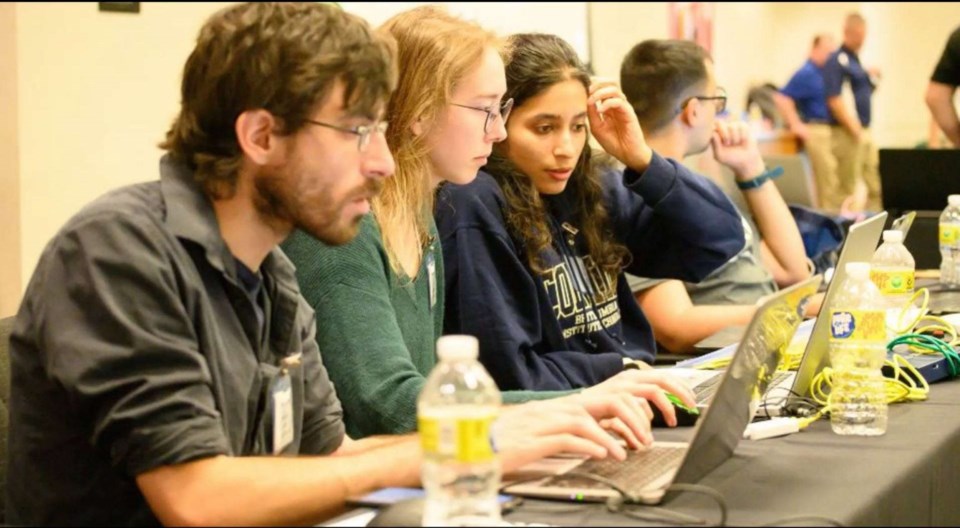Four students from the British Columbia Institute of Technology have returned to B.C. after matching wits with their peers in a challenge aimed at honing their cybercrime-detection and prevention skills.
The students, studying with BCIT's digital forensics and cybersecurity program, flew to St. Petersburg, Fla., in late October to take part in the Capture the Flag event, hosted by financial firm Raymond James on Oct. 22. The BCIT team was among 14 university and college groups from across North America competing in acknowledgement of Cybersecurity Awareness month.This was the first time BCIT was invited to participate.
Students Brandon Wittet, Raeann Sherman, Gary Khodayari and Ashvan Wal represented BCIT, the only Canadian post-secondary institution to compete this year. The school finished fourth overall in the competition.
Wittet, a part-time digital forensics and cybersecurity student, said he was honoured to be invited by BCIT program co-ordinator Raymond Yu to compete at the event.
“You don’t say no to opportunities like this because they don’t come around that often,” he said. “Getting the chance to test myself against other schools in the United States and getting a sense of where I stand compared to other students, I thought it would be really fun.”
Before heading to Florida, the team members, who were selected based on their academic abilities in different classes, embarked on their competitive journey with some training sessions in subjects such as file analysis, networking and cryptography.
Security challenges
Khodayari explained that the eight-hour Capture the Flag (CTF) challenge simulated real-world scenarios in which an organization gets digitally attacked.
“You’re being given files where you must find the hack, a hidden flag,” the student said. “Each time you find the flag, you receive points and progress to the next challenge.”
The BCIT team tied for the first place with four others in the main challenge, but struggled more on the competition's “mini-challenges," such as doing push-ups, a Lego skill test and lock picking.
“We didn’t expect these side challenges,” Wal admitted. “Even though lock picking has to do with security, we didn’t prepare for these ‘physical security’ challenges. We could have performed better if we had known more about this beforehand. But then again, how do you prepare for lock picking?"
Sherman said it was satisfying to outperform opponents with a stronger cybersecurity background.
“The United States takes cybersecurity a lot more seriously than Canada,” she said. “There are so many schools that offer cybersecurity programs, and they even have specializations within their cybersecurity programs. And we just went in and crushed it.”
Khodayari added that many teams have dedicated CTF clubs with funding and coaches. “And the team [University of Florida] that won has competed twice before, so it’s obvious that our competitors took it very seriously and came well prepared.
“We stacked up so well against the American schools and I think we can be proud of ourselves.”
BCIT recently opened its Industrial Network Cybersecurity (INC) Lab, in hopes of closing the gap for cybersecurity skills.




